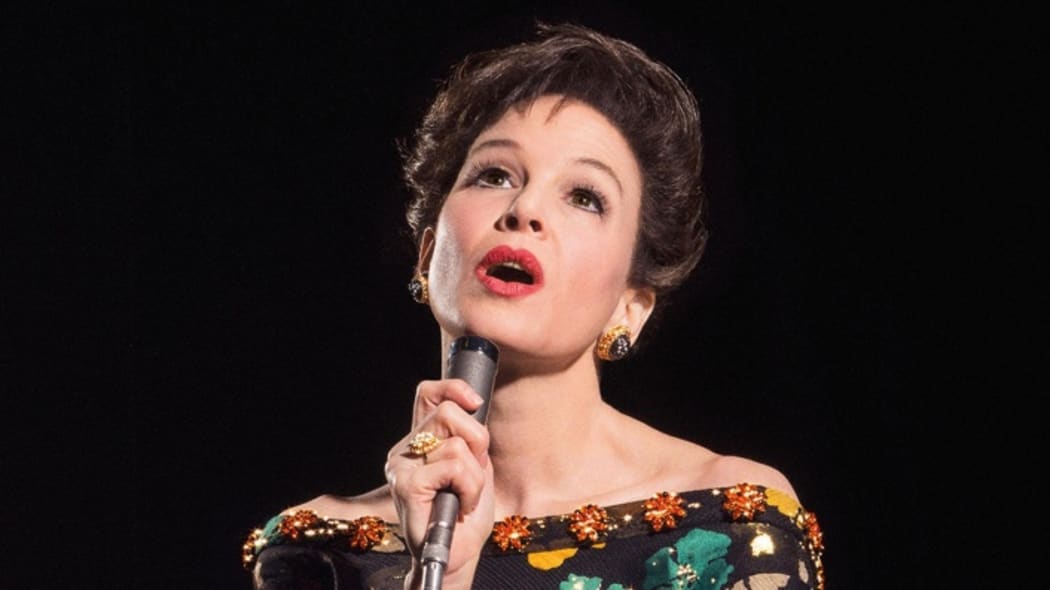One of the biggest stars of Hollywood’s Golden Age finally gets a biopic. The only question is, who could possibly play the inimitable Judy Garland?
The toughest thing for any actor tackling the title role of the film Judy is that everyone keeps saying “She’s quite ordinary until she starts singing. Wow, what a voice!” Go on, try and live up to that buildup!

Renee Zellweger as Judy Garland Photo: supplied
But the fact is Garland wasn’t just a voice. She belonged in the spotlight, with her unique blend of confidence and vulnerability. She was a dazzling movie talent from her teens – until the trolley-car stopped.
The star of Judy is Renee Zellweger, who is quite extraordinary, not only looking and sounding remarkably like Garland, but capturing that unique, fragile pizzazz that nobody else has ever quite matched.
The story of Judy – written by Tom Edge from a play by another Englishman Peter Quilter – takes place in the late Sixties, in the last year of her life. She was just 47, but her film career had dried up, as had her live work at home.
She lived a gypsy life with her two youngest kids, who she often took on stage with her.
And she lived on a constant diet of pills – downers to go to sleep, uppers to wake her up. She was essentially homeless, and often relied on the kindness of fans.
Then she was offered a lifeline – another season in London, where Garland had always been a huge star.
Those are the bare bones of the story, but there’s far more to Judy than the ups and downs of a neurotic, self-obsessed performer who can’t accept that the party might be over.
How did she get here? asks the film. And we trip back regularly to the so-called glory days, when Garland was making films like The Wizard of Oz.
The life of a star – particularly child stars like Garland and her long-time pal/would-be boyfriend Mickey Rooney – was notoriously brief.
When you were working for a slave-driver like Louis B Mayer you didn’t stop for sleep, or food. The public liked their stars thin, and the MGM doctors had just the pills to keep them like that.
So what happened? Who stopped Garland from living the sort of normal life she kept claiming she wanted and needed? How much to blame was the monstrous Mayer for her subsequent troubles?
And how much was it the fault of the string of frankly useless men she hooked up with?
Rufus Sewell plays her former manager and ex-husband, Sid Lufts, who to his credit did his best for a while.
But Garland was often her own worst enemy when it came to picking good-looking losers like Mickey Deans, whose plans and schemes for her were mostly so much hot air.
Meanwhile, as Garland's life was falling apart, the London’s Talk of the Town shows had to go on.
Impresario Bernard Delfont is nicely played by Michael Gambon at his shiftiest, while Delfont’s Girl Friday is played by this year’s actual A Star Is Born, Jessie Buckley.
Buckley makes the most of her limited screen time in a way Garland herself would applaud.
But the film is blessed with a wonderful – and almost certainly award-winning – performance by Zellweger. I’ve never seen her better, both on-stage and off, and she shows the self-centred steel under the vulnerable exterior.
This isn’t a poor-me/victim performance that the real-life Garland would occasionally play to great effect with her audiences – the famous Friends of Dorothy.
It’s far more, thanks to a terrific, thoughtful and well-researched script, and sharp direction from Rupert Goold.
Why would anyone put themselves through this sort of torture, asks the film? Is stardom really worth such a price?
To which Garland's answer would be simple: I don’t understand the question. Of course it is.

